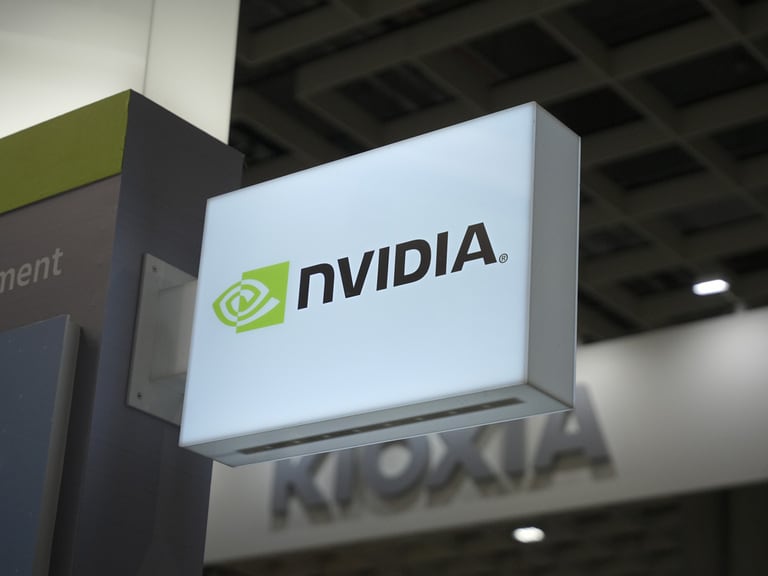Watch our week ahead video preview and read our pick of the top stories to look out for this week (17-21 August).
Michael reviews recent price action and economic data, as well as looking ahead to the latest FOMC minutes, UK-EU trade negotiations, the latest UK retail sales, as well as flash PMIs and updates from Cineworld, Persimmon and Walmart. He also looks at key levels on the FTSE 100, DAX, Gold, S&P 500 and GBP/USD and EUR/USD.
Walmart Q2 results
Tuesday: In Q1 Walmart saw e-commerce sales rise by 74% as more people shopped on-line as a result of the Covid-19 lockdowns. While its sales soared during the pandemic, so did its costs as the company employed an extra 200k people to help clean stores, stack shelves and get online orders out of the door. This extra $900m in costs didn’t stop the company turning over $134.6bn in Q1, as the company continues to compete with Amazon in the US retail sector. Walmart also invested an extra $1.2bn in its Flipkart venture, increasing its majority stake in the Indian operation in order to ramp up its operations there, which have been struggling due to intense competition with Amazon. The consolidation of Walmart’s Indian wholesale business into Flipkart’s operations will help cut costs as it seeks to make inroads there.
There has also been some talk in recent months that Walmart has been considering its options over its Asda business, looking at either an IPO or the sale of the business to a private equity firm. These initial discussions, which were confirmed in February, came at the same time as the coronavirus pandemic had started to make headlines and stock markets were close to the bottom of their sharp sell-offs. These talks were said to have resumed in July; however, an IPO seems much less likely now, given the even thinner margins facing the UK’s supermarket sector.
Home Depot Q2 results
Tuesday: When Home Depot reported its Q1 earnings in May, profits were dragged down by the costs of having to safeguard its staff as a result of the pandemic. Revenue for Q1 rose 7.1% to $28.26bn, with same-store sales rising 6.4% as consumers stayed in and spent money on their homes, while there was also a boom in online sales. However, net income fell 10.7% to $2.25bn as the company doubled overtime payments and weekly bonuses. The company was classed as an essential retailer during the various lockdowns, so had to invest in a lot of part-time workers to make up the extra work load. While costs are expected to continue their rise, the resulting revenue growth should be able to compensate for that. As such profits for Q2 are expected to come in much higher than Q1, at $3.44 a share.
NVIDIA Q2 results
Tuesday: NVIDIA has outperformed the wider market over the past few months; shares are up over 80% year to date. This has been helped by the combination of a revenue surge in its data processor business, and the increased demand for home computers due to the growth of home working. The recent rise in cryptocurrencies could also help boost demand for its chipsets, with bitcoin back at one-year highs. NVIDIA’s A100 GPU is used by the likes of Amazon, Google and Microsoft in their respective cloud businesses. Demand there has been strong, and is likely to remain that way as all companies look to boost their cloud capacity. Demand for NVIDIA’s high-performance graphics chips has also been fairly robust, however there is a concern that while video games have become more popular, gaming console demand could slow, given their expensive price tag. This could make the NVIDIA share price vulnerable to a pull back if this week’s update falls short in any areas.
Persimmon half-year results
Tuesday: Housebuilders also took a hit because of the UK economy’s lockdown in April. In July, Persimmon provided a snapshot of the effects the lockdown had on its business during Q2. In April, total revenues fell to £1.19bn, down from £1.75bn in 2019, with completions sharply lower at 4,900, down from 7,584. On the plus side, average selling prices were modestly higher at £225,000, however higher costs are likely to eat away at overall margins in the months ahead, which could act as a drag on profitability. Much will depend on whether the removal of stamp duty for properties up to £500,000 will offset any loss of confidence prospective buyers have about the economic outlook. Recent mortgage approvals data suggests that consumers are becoming much more cautious. There are certainly grounds for optimism if the rise in forward sales that occurred in the wake of retail offices reopening is sustained into the rest of the year. The outlook looks more promising outside of London, as demand for property further afield rises post-lockdown.
FOMC minutes
Wednesday: Last month’s Federal Reserve meeting was again notable for what was happened outside of it, with the Fed announcing it would be extending its central bank and US dollar repo and swap lines until the end of March 2021, as a precautionary measure to ensure the smooth functioning of financial markets. While monetary policy was left unchanged, it was quite apparent from Fed chair Jerome Powell’s comments that it was trying to get ahead of any possible economic deterioration, while also acknowledging that current events are likely to remain largely out of their hands, and dependent not only on the overall course of coronavirus, but also on any further fiscal action from US politicians. Powell’s comment that the Fed needed to hope for the best but prepare for the worst could as easily have been aimed at Capitol Hill, and the partisan nonsense going on there, with regard to the probable stop-start nature of how the virus will affect life in local communities, and the implementation and lifting of lockdown measures in response to future outbreaks. Powell also said the Fed was in this until “we’re well through it”, which suggests an extensively easy monetary policy was discussed. We’ll also find out how close the Fed is to a policy of yield curve control, as we look ahead to the Economic Policy Symposium. Instead of its intended home in Jackson Hole, Wyoming, the event will now be held virtually with the theme “Navigating the Decade Ahead: Implications for Monetary Policy”, on 27 and 28 August.
US weekly jobless claims
Thursday: Having hit their lowest levels since late March a couple of weeks ago, there is still some concern that the rise in virus cases during the second part of July, as well as the cliff edge drop of the $600-a-week enhanced unemployment benefits package will lead to a spike in claims in the weeks ahead. The latest claims numbers came in at 963k, dropping below the 1m level for the first time since before the lockdown in early March. Continuing claims also fell back to 15.48m, again the lowest figure since the first week in April. These falls in the levels of claims are more surprising given that there had been much handwringing at the prospect of the loss of this weekly $600 unemployment benefit, and the effect it might have on the US jobs market. Yet here we are, two weeks into August and the weekly claims numbers have continued to fall, as have the continuing claims numbers. That could still change if US lawmakers continue to procrastinate about a future stimulus package.
Cineworld half-year results
Cineworld has now moved it's half-year results announcement from Friday to 24 September 2020.
Deere & Co Q3 results
Friday: When Deere reported its Q2 numbers, the US agricultural equipment maker said that it expected global sales to fall by up to 40% in Q3. While revenues beat expectations in Q2, this was mainly as a result of the various measures to cut costs, which has included laying off hundreds of workers, replacing higher-paid more experienced workers with younger and lower-skilled employees. Since those Q2 figures in May, the US economy has continued to open up, and Deere shares have risen solidly from their March lows to be trading at one-year highs. Expectations are for profits to come in at $1.21 a share.
UK public finances (July)
Friday: The UK government has borrowed over £100bn in the last three months, an exceptional post-war intervention to support an economic shock that will reverberate for years to come. In April, £47.8bn was borrowed, followed by another £44.7bn in May as the UK treasury paid the wages of over 8m private sector employees. In June that number came in at another £34.8bn, while the number of jobs receiving government support has risen to over 10m. A number of UK companies have since said they would be repaying the help they received from the UK government, which is welcome news and may make it easier for chancellor, Rishi Sunak to look at extending the furlough to the most vulnerable sectors of the economy.
At some point the UK government will still have to look at how they intend to pay for all of this, but for now with two and five-year yields in negative territory and 10-year yields below 0.25%, it isn’t something they need to be too concerned about. A large total is expected in July, and while it won’t stop UK borrowing from moving above 100% of GDP, the chancellor may be a little more flexible given that the total amount borrowed isn’t as high as originally thought.
UK retail sales (July)
Friday: After the big declines at the end of Q1 and beginning of Q2, there’s been a decent rebound in the May and June with respect to consumer spending. There have been weak spots, but also big improvements in food sales along with DIY, as well as a surge in online activity, even as non-essential shops reopened in the middle of June, followed by hair dressers, pubs and restaurants at the beginning of July. The rebounds of 12% in May and 13.9% in June are all the more welcome given that unlike the US, infection rates in July have been fairly stable, which along with some decent weather could bring more positive, if a little cautious, retail activity.
UK, France and Germany flash PMIs (August)
Friday: Recent purchasing manager indices (PMI) data from the UK, Germany and France has shown a continued recovery in economic activity, as businesses have continued to reopen. This recovery has been most evident in the services sector, which bore the brunt of the initial lockdown declines. In the July numbers, UK services improved sharply to 56.5, from 47.1 in June. With restaurants and bars, along with hair salons continuing to reopen and the chancellor’s ‘Eat out to help out’ proving very popular, there could be further improvements in UK data. There have been similar strong gains in the France and Germany services numbers as well, with France posting a reading of 57.3, and Germany 55.6. Manufacturing has proved to be more resilient, and is still above the water line in all three cases – above the 50 level. The wider question is, that without further relaxation of the rules due to concern over some localised outbreaks, whether August activity slips back a touch from the July bounce.
Index dividend schedule
Dividend payments from an index's constituent shares can affect your trading account. See this week's index dividend schedule
Selected UK & US company announcements
| Monday 17 August | Results |
| TORM (UK) | Q2 |
| Tuesday 18 August | Results |
| Amcor (UK) | Full-year |
| Home Depot (US) | Q2 |
| Kohl's (US) | Q2 |
| Persimmon (UK) | Half-year |
| Walmart (US) | Q2 |
| Wednesday 19 August | Results |
| Costain (UK) | Half-year |
| Nvidia (US) | Q2 |
| Samsonite (US) | Q2 |
| Synopsys (US) | Q3 |
| Thursday 20 August | Results |
| Citi Trends (US) | Q2 |
| Estee Lauder (US) | Q4 |
| LSI Industries (US) | Q4 |
| Premier Oil (UK) | Half-year |
| Friday 21 August | Results |
| Deere (US) | Q3 |
Company announcements are subject to change. All the events listed above were correct at the time of writing.






